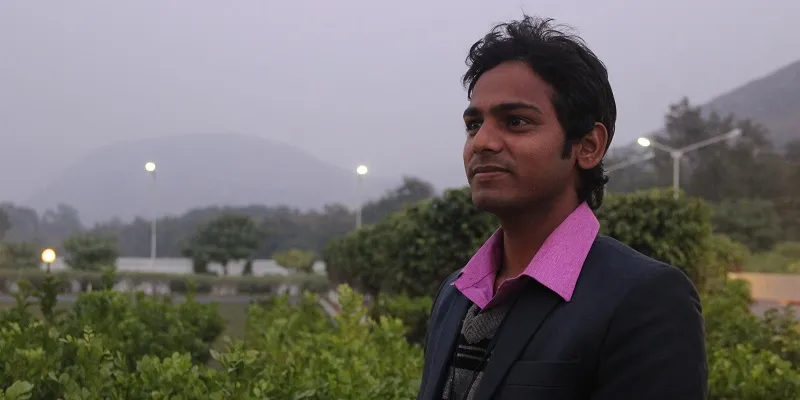Meet 22-year-old Prem Singh Dangi, a representative of change for the 'real' India
Have you ever seen the ‘real’ India? The real India which resides in villages without basic sanitation, where education beyond Class XII is unheard of, or rather a preserve of the affluent in a particular village.
Prem Singh Dangi, 22, is one such person from real India, who stood against the tide. By opening a school in his village, he converted his lack of guidance and resources in pursuing his education into an opportunity for the underprivileged. A school to teach and empower children of Below Poverty Line (BPL) families.

But, Prem doesn’t belong to a privileged family neither was he supported by an NGO or an initiative. He was run by conscience.
Hailing from Katouna village of Jamui district in Bihar, Prem’s father is a wheat farmer, while his mother is a homemaker and helps her husband in the fields. The monthly income of the household was Rs 5000 a month.
Prem had high hopes of pursuing higher education in science, but, considering the financial constraints of the family, even his teachers advised his father against it.
Prem says, “Maybe I didn’t get the right guidance and strong base then, but I don’t want the children of my village to go through the same.”
His resolve remained and it is now exactly two years, since the start of his initiative, Pucho Seekho Jaano, or Ask, Learn And Know (ALAK Education), in his village.
Apprehensions to determination
But every courageous act has a resistance. In Prem’s case, it was his father, who believed that social work should be done by those who can afford it. He asked him to either take up a job or resume studying for competitive examinations. Choosing the latter, Prem was sent to Patna. But that didn’t deter Prem, as he continued to empower children through education, even in the slums of Patna.
Seeing that he was not listening to him, Prem’s father made him return to the village. Prem did not mind as he wanted to resume his work with the children.
ALAK
As with most cases of entrepreneurship, the vision seemed big but resources were scarce. Prem didn’t even have a shelter to teach children.
He chose to make use of the Community Government Bhavan, an establishment which was primarily used by the men of the village to play taash (cards). Everyday, Prem went 30 minutes ahead of classes, to clear off the area and ask people to move.
“Abhi Jaawani ka josh hai, kuch din yeh karega fir chor dega.” (He’s young and still immature. Once this wears out, he will abandon the initiative.)
When he started he didn’t even have Rs 1,000 in his wallet nor mats or a blackboard in his “school”.
Today, the centre holds a completely different sight, with children busy scribbling on notebooks.
At present, the school teaches students from Classes I to VIII for free, with as many as 250 having taken admission to the course.
Through the help of Saksham, an NGO started by Prime Minister’s Rural Development Fellows Scheme employees, Prem today has projectors and laptops five to sixin his classrooms, enabling the children to learn computers.
There are other students who have completed matriculation and BA coming in just to learn computers, expanding Prem’s impact to 300 students in total. Aditya Tyagi, Co-founder, Saksham, has helped Prem by providing money to buy the necessities for the school.
Today, Prem invests up to Rs 50,000 yearly to maintain the school and provide notebooks to children.
He does so from the earnings from tuition he takes for the more affluent children in the village, which is close to Rs 15,000 per month.
He faces the family’s ire for not bringing home any money, but Prem says his focus lies purely on equipping his students with an education.
“Bihar’s education system is fraught with cheating in examinations, but I’ll build my students so well that they’ll never even think about it,” he says.
Prem represents the real middle India, a middle India which is ready to break the shackles of misfortune to give wings to its aspirations. A middle India which will not wait for government initiatives or philanthropy but will pave the change it wants to see.







